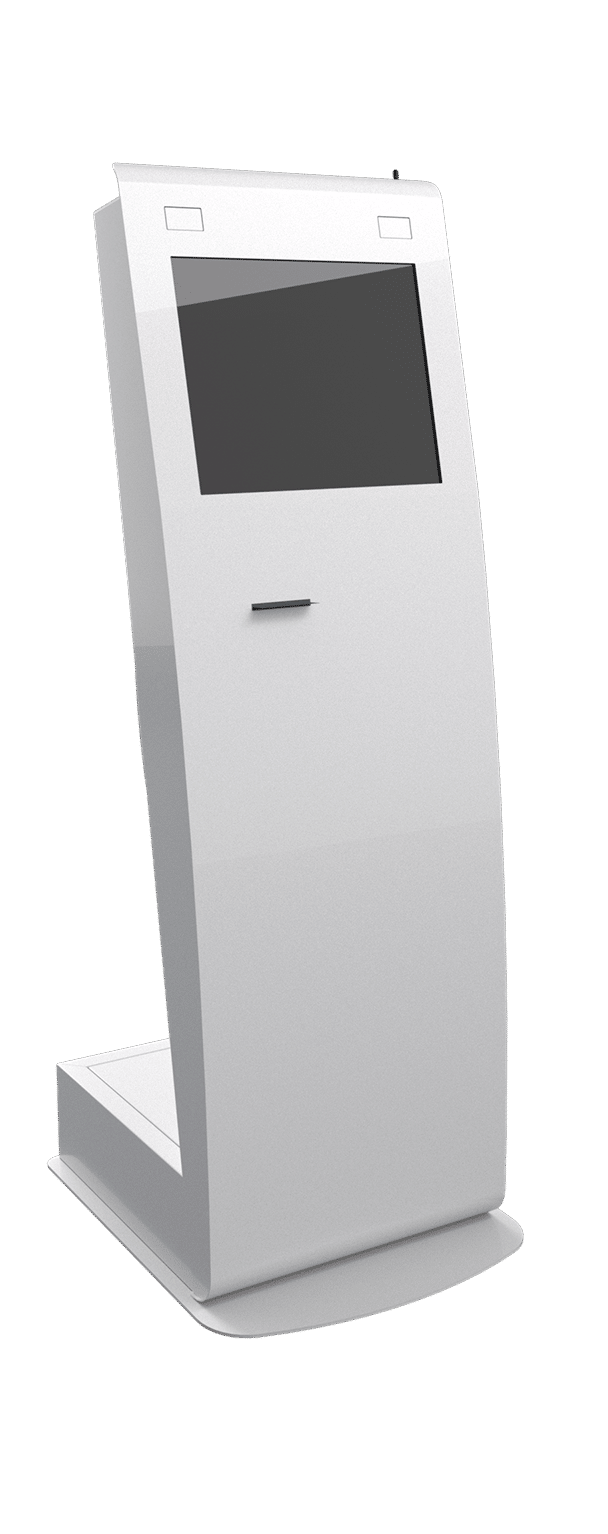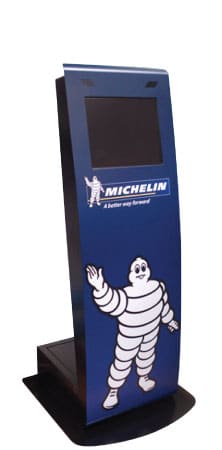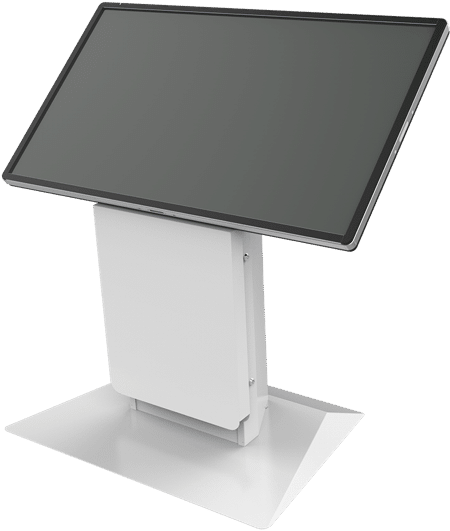Interactive kiosks are finding new and expanded uses across a wide range of business sectors including retail, healthcare, and travel, since they offer convenience for consumers and operating efficiencies for businesses. Kiosks can increase sales, reduce operating costs and improve customer service, yet business people often misunderstand the potential benefits that can be achieved through the use of kiosk technologies. It may be helpful to debunk the following five common myths about kiosks:
1. Kiosks cost too much
Some business people complain about the supposedly-high cost of kiosks. To buy the right equipment and software does indeed require a significant investment, but the reality is that businesses typically save money by using kiosks to help speed customer service and improve business efficiency. The return on investment (ROI) from kiosks is often very high, so a successful kiosk deployment pays for itself quickly.
When deployed for applications in retail marketing, ticketing and check-ins, kiosks greatly reduce labor-related overhead costs including payroll, insurance and taxes. Since customers benefit from faster processing times, everyone wins.

2. Kiosks kill jobs
Although less-savvy junior employees may fear that kiosks will replace them or, worse, create additional work, the reality is far different. As with other valuable business technologies, interactive kiosks free employees to focus on more-important tasks, such as face-to-face customer assistance when needed.
Companies save money by utilizing kiosks to lower their operating costs and become more competitive, which allows companies to be more profitable, and thus increase the size of their operation. As a result, kiosks are job-savers, not job-killers.
3. Weak data security
Along with point-of-sale (POS) registers and other digital equipment used in retail environments, kiosks are sometimes unfairly accused of being vulnerable to data-security breaches. However, kiosks are safe and secure for businesses and consumers alike. Well-built systems, such as Olea’s kiosks, are hardened with security measures to prevent hacks and intrusions, so consumers’ sensitive financial and healthcare information remains confidential.

Beyond digital security, leading kiosk systems also feature user-friendly privacy and security options, including lenticular filters to reduce the viewing angle of the touchscreen, and powerful security software to protect consumers.
4. Kiosks are difficult to access
Although a few well-meaning observers claim that kiosks are inaccessible to people with language barriers and those who suffer from physical or mental impairments, the truth is far different: Today’s interactive, adaptive kiosks are designed to serve handicapped or wheelchair-bound consumers as well as non-English-speaking clients.
Touchscreen kiosks with easy, intuitive instructions and foolproof graphics allow almost anyone to successfully complete a transaction. The use of multilingual functionality, as well as optional audio peripherals, ensures that kiosks are easily accessed by all users.
5. Kiosks require too much service
Interactive kiosks must be serviced and updated periodically to ensure best service, but high quality Kiosk systems, such as those manufactured by Olea, are extremely reliable and durable. Olea relies on a team of experienced designers, developers and technicians to ensure trouble-free execution and integration, and long duty cycles with minimal repairs.
The best kiosk systems are designed to efficiently serve large numbers of users at an economical price, and are built to withstand typical wear-and-tear while doing so.
The new normal, customers prefer kiosks:
This is no longer a myth. In fact, consumers seek the shortest possible route toward a solution for their current needs, whether through automated or human channels.
Numerous customer-service surveys have shown that consumers prefer kiosks because:
- Interactive kiosks allow 24-hour business operations without on-site employees
- Customers control their own transactions
- Busy or constricted areas with heavy foot traffic can be served with kiosks more easily than live staff
- Kiosks in multiple locations can be managed remotely in real time, with online monitoring
Almost all consumers use kiosks intuitively, and tech-loving young people are attracted to kiosks as the fastest way to complete a customer-service transaction. Savvy organizations use kiosks to increase client satisfaction and bring more buyers from this desirable younger demographic.
To learn more about the benefits of using kiosks to reduce operating expenses, increase sales and improve customer service, contact the professionals at Olea Kiosks, Inc. at 800.927.8063.
